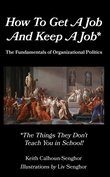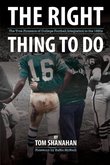
by Jocelyn Nicole Johnson ‧ RELEASE DATE: Oct. 5, 2021
A sharp debut by a writer with wit and confidence.
Awards & Accolades
Our Verdict

GET IT
Kirkus Reviews'
Best Books Of 2021
Kirkus Prize
finalist
NBCC John Leonard Prize Finalist
Stories centered on racism and Virginia, anchored by a dystopian tale set in Thomas Jefferson’s home.
The title novella that closes Johnson’s debut book is stellar and could easily stand on its own. Plainly inspired by the deadly 2017 Unite the Right rally in Charlottesville, Johnson imagines a near future in which an “unraveling” has forced some of the town’s brown and Black residents to find safety on Jefferson’s homestead. The narrator, a University of Virginia student named Da’Naisha, is a descendant of Jefferson and Sally Hemings and used to have an internship on the Monticello grounds. She’s well aware of the irony of taking cover on a former plantation, but she has more pressing issues: She’s pregnant, uncertain of the father, and her grandmother is suffering from asthma but lacks medicine. In depicting Da'Naisha's attempts to organize her fellow refugees to fend off an impending attack from marauding racists, Johnson crafts a fine-grained character study that also harrowingly reveals how racist violence repeats. Not all of the remaining stories have the same force, but Johnson has a knack for irony and inventive conceits. “Buying a House Ahead of the Apocalypse” is a story in the form of a checklist, suggesting all the ways that pursuing a sense of security can be products of self-delusion (“Never mind the dark-skinned guard who wouldn’t even let you in…”). And the opening “Control Negro” is narrated by a man who uses his son to study whether a Black man who's “otherwise equivalent to those broods of average American Caucasian males” could transcend racism. In a few taut pages, Johnson uses the setup to explore not just institutional racism, but fatherhood, fatalism, policing, and social engineering. “How does anyone know if they are getting more or less than they deserve?” the narrator asks, a question the story makes both slippery and plain as day.
A sharp debut by a writer with wit and confidence.Pub Date: Oct. 5, 2021
ISBN: 978-1-250-80715-1
Page Count: 224
Publisher: Henry Holt
Review Posted Online: July 13, 2021
Kirkus Reviews Issue: Aug. 1, 2021
Share your opinion of this book
More About This Book
PERSPECTIVES

by Alison Espach ‧ RELEASE DATE: July 30, 2024
Uneven but fitfully amusing.
Awards & Accolades
Likes

14
Our Verdict

GET IT
New York Times Bestseller
Betrayed by her husband, a severely depressed young woman gets drawn into the over-the-top festivities at a lavish wedding.
Phoebe Stone, who teaches English literature at a St. Louis college, is plotting her own demise. Her husband, Matt, has left her for another woman, and Phoebe is taking it hard. Indeed, she's determined just where and how she will end it all: at an oceanfront hotel in Newport, where she will lie on a king-sized canopy bed and take a bottle of her cat’s painkillers. At the hotel, Phoebe meets bride-to-be Lila, a headstrong rich girl presiding over her own extravagant six-day wedding celebration. Lila thought she had booked every room in the hotel, and learning of Phoebe's suicidal intentions, she forbids this stray guest from disrupting the nuptials: “No. You definitely can’t kill yourself. This is my wedding week.” After the punchy opening, a grim flashback to the meltdown of Phoebe's marriage temporarily darkens the mood, but things pick up when spoiled Lila interrupts Phoebe's preparations and sweeps her up in the wedding juggernaut. The slide from earnest drama to broad farce is somewhat jarring, but from this point on, Espach crafts an enjoyable—if overstuffed—comedy of manners. When the original maid of honor drops out, Phoebe is persuaded, against her better judgment, to take her place. There’s some fun to be had here: The wedding party—including groom-to-be Gary, a widower, and his 11-year-old daughter—takes surfing lessons; the women in the group have a session with a Sex Woman. But it all goes on too long, and the humor can seem forced, reaching a low point when someone has sex with the vintage wedding car (you don’t want to know the details). Later, when two characters have a meet-cute in a hot tub, readers will guess exactly how the marriage plot resolves.
Uneven but fitfully amusing.Pub Date: July 30, 2024
ISBN: 9781250899576
Page Count: 384
Publisher: Henry Holt
Review Posted Online: Sept. 13, 2024
Share your opinion of this book

by Richard Wright ‧ RELEASE DATE: April 20, 2021
A welcome literary resurrection that deserves a place alongside Wright’s best-known work.
Awards & Accolades
Likes

16
Our Verdict

GET IT
New York Times Bestseller
IndieBound Bestseller
A falsely accused Black man goes into hiding in this masterful novella by Wright (1908-1960), finally published in full.
Written in 1941 and '42, between Wright’s classics Native Son and Black Boy, this short novel concerns Fred Daniels, a modest laborer who’s arrested by police officers and bullied into signing a false confession that he killed the residents of a house near where he was working. In a brief unsupervised moment, he escapes through a manhole and goes into hiding in a sewer. A series of allegorical, surrealistic set pieces ensues as Fred explores the nether reaches of a church, a real estate firm, and a jewelry store. Each stop is an opportunity for Wright to explore themes of hope, greed, and exploitation; the real estate firm, Wright notes, “collected hundreds of thousands of dollars in rent from poor colored folks.” But Fred’s deepening existential crisis and growing distance from society keep the scenes from feeling like potted commentaries. As he wallpapers his underground warren with cash, mocking and invalidating the currency, he registers a surrealistic but engrossing protest against divisive social norms. The novel, rejected by Wright’s publisher, has only appeared as a substantially truncated short story until now, without the opening setup and with a different ending. Wright's take on racial injustice seems to have unsettled his publisher: A note reveals that an editor found reading about Fred’s treatment by the police “unbearable.” That may explain why Wright, in an essay included here, says its focus on race is “rather muted,” emphasizing broader existential themes. Regardless, as an afterword by Wright’s grandson Malcolm attests, the story now serves as an allegory both of Wright (he moved to France, an “exile beyond the reach of Jim Crow and American bigotry”) and American life. Today, it resonates deeply as a story about race and the struggle to envision a different, better world.
A welcome literary resurrection that deserves a place alongside Wright’s best-known work.Pub Date: April 20, 2021
ISBN: 978-1-59853-676-8
Page Count: 240
Publisher: Library of America
Review Posted Online: March 16, 2021
Kirkus Reviews Issue: April 1, 2021
Share your opinion of this book
More by Richard Wright
BOOK REVIEW
BOOK REVIEW
BOOK REVIEW
More About This Book
BOOK TO SCREEN
© Copyright 2025 Kirkus Media LLC. All Rights Reserved.
Hey there, book lover.
We’re glad you found a book that interests you!
We can’t wait for you to join Kirkus!
It’s free and takes less than 10 seconds!
Already have an account? Log in.
OR
Trouble signing in? Retrieve credentials.
Welcome Back!
OR
Trouble signing in? Retrieve credentials.
Don’t fret. We’ll find you.





